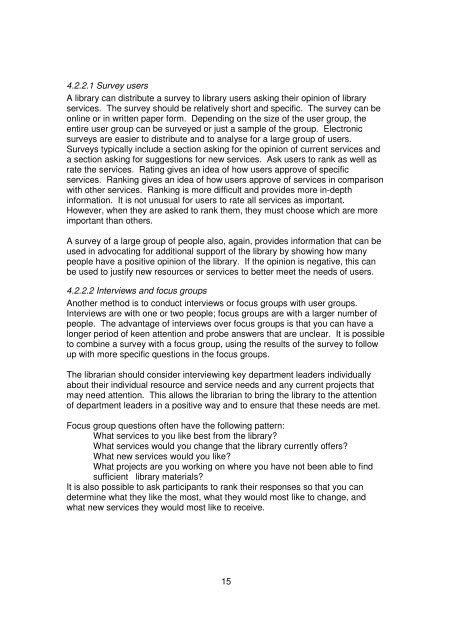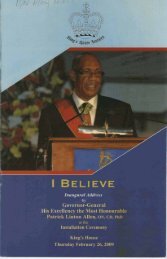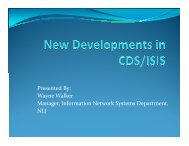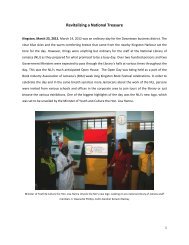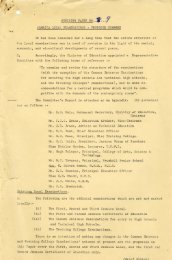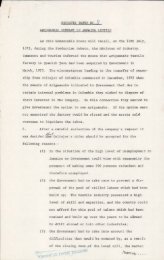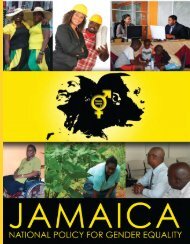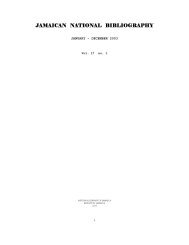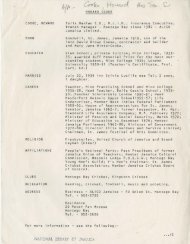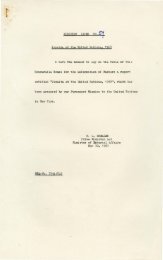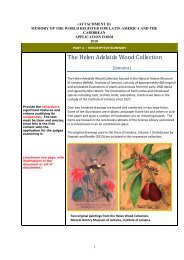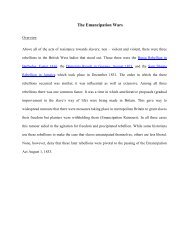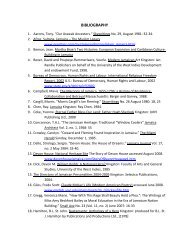Guidelines for Libraries of Government Departments - IFLA
Guidelines for Libraries of Government Departments - IFLA
Guidelines for Libraries of Government Departments - IFLA
Create successful ePaper yourself
Turn your PDF publications into a flip-book with our unique Google optimized e-Paper software.
4.2.2.1 Survey users<br />
A library can distribute a survey to library users asking their opinion <strong>of</strong> library<br />
services. The survey should be relatively short and specific. The survey can be<br />
online or in written paper <strong>for</strong>m. Depending on the size <strong>of</strong> the user group, the<br />
entire user group can be surveyed or just a sample <strong>of</strong> the group. Electronic<br />
surveys are easier to distribute and to analyse <strong>for</strong> a large group <strong>of</strong> users.<br />
Surveys typically include a section asking <strong>for</strong> the opinion <strong>of</strong> current services and<br />
a section asking <strong>for</strong> suggestions <strong>for</strong> new services. Ask users to rank as well as<br />
rate the services. Rating gives an idea <strong>of</strong> how users approve <strong>of</strong> specific<br />
services. Ranking gives an idea <strong>of</strong> how users approve <strong>of</strong> services in comparison<br />
with other services. Ranking is more difficult and provides more in-depth<br />
in<strong>for</strong>mation. It is not unusual <strong>for</strong> users to rate all services as important.<br />
However, when they are asked to rank them, they must choose which are more<br />
important than others.<br />
A survey <strong>of</strong> a large group <strong>of</strong> people also, again, provides in<strong>for</strong>mation that can be<br />
used in advocating <strong>for</strong> additional support <strong>of</strong> the library by showing how many<br />
people have a positive opinion <strong>of</strong> the library. If the opinion is negative, this can<br />
be used to justify new resources or services to better meet the needs <strong>of</strong> users.<br />
4.2.2.2 Interviews and focus groups<br />
Another method is to conduct interviews or focus groups with user groups.<br />
Interviews are with one or two people; focus groups are with a larger number <strong>of</strong><br />
people. The advantage <strong>of</strong> interviews over focus groups is that you can have a<br />
longer period <strong>of</strong> keen attention and probe answers that are unclear. It is possible<br />
to combine a survey with a focus group, using the results <strong>of</strong> the survey to follow<br />
up with more specific questions in the focus groups.<br />
The librarian should consider interviewing key department leaders individually<br />
about their individual resource and service needs and any current projects that<br />
may need attention. This allows the librarian to bring the library to the attention<br />
<strong>of</strong> department leaders in a positive way and to ensure that these needs are met.<br />
Focus group questions <strong>of</strong>ten have the following pattern:<br />
What services to you like best from the library<br />
What services would you change that the library currently <strong>of</strong>fers<br />
What new services would you like<br />
What projects are you working on where you have not been able to find<br />
sufficient library materials<br />
It is also possible to ask participants to rank their responses so that you can<br />
determine what they like the most, what they would most like to change, and<br />
what new services they would most like to receive.<br />
15


